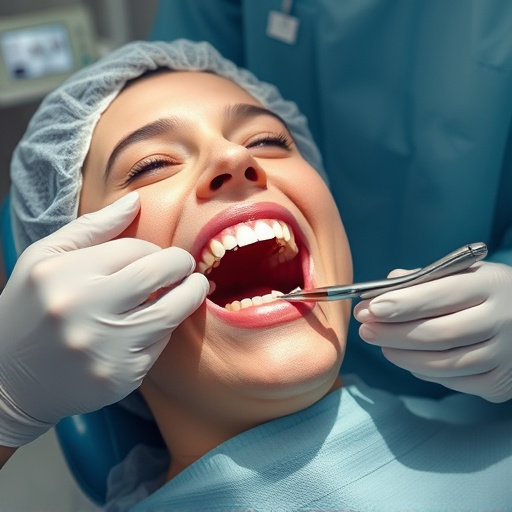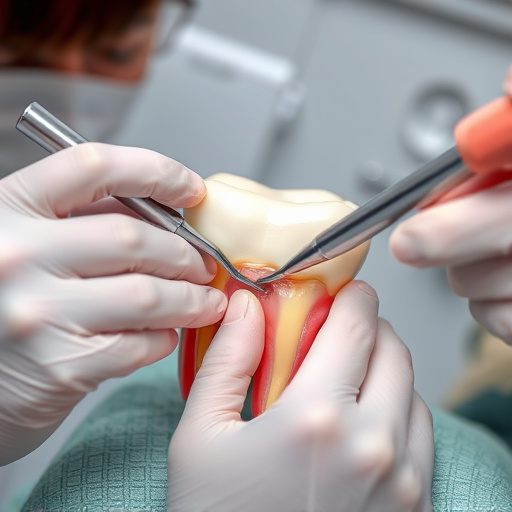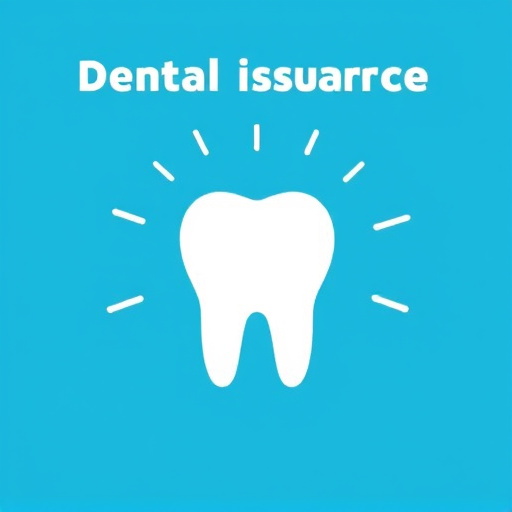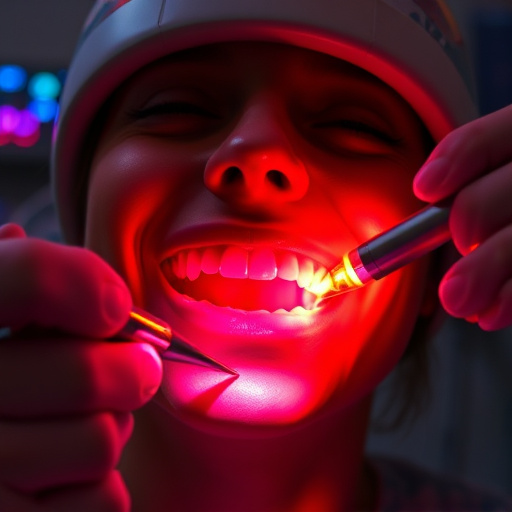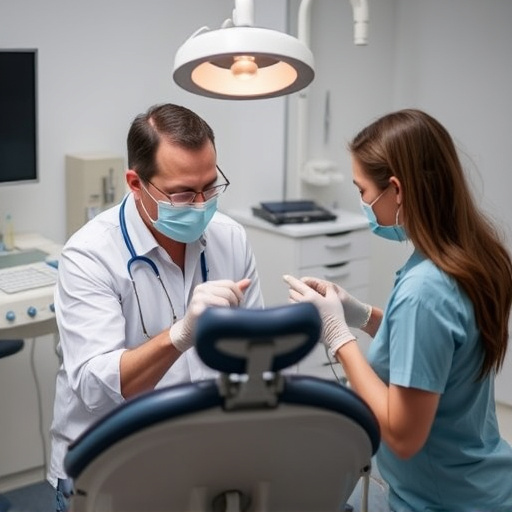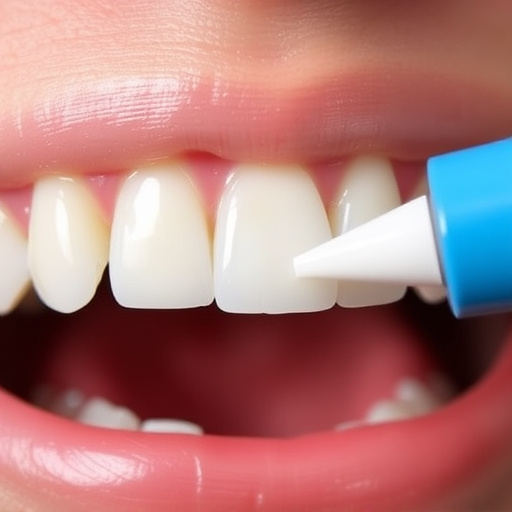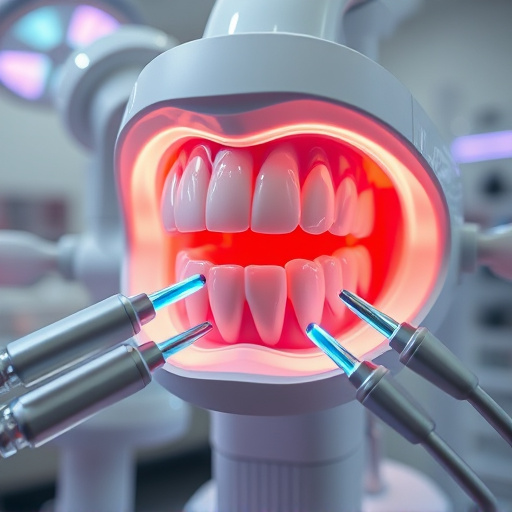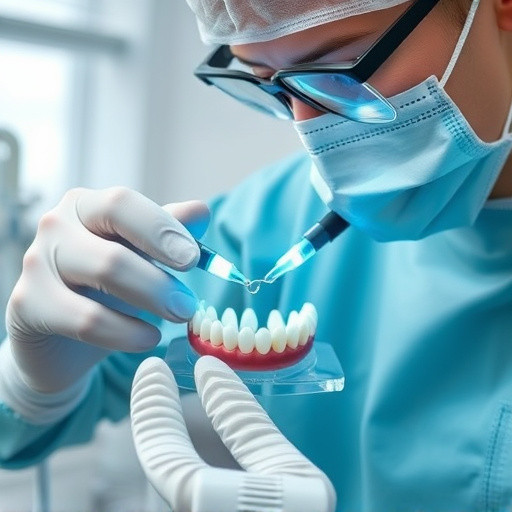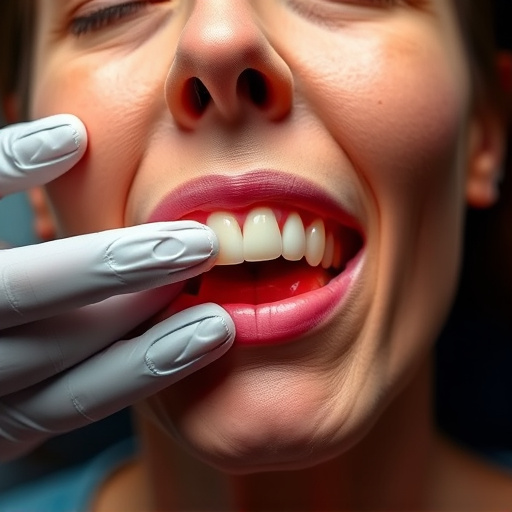Emergency dental care addresses acute oral issues needing immediate attention, preventing worsening conditions and offering pain relief. Recognizing early signs of swelling and bleeding is crucial for preventive dental care. Regular check-ups with general dentistry practitioners detect these indicators before severe issues like gum disease or tooth extractions. Prompt action on minor problems preserves smile aesthetics and functionality, while regular dental visits enable early problem detection through preventive dental care.
Emergency dental care is a vital component of overall health management, offering immediate solutions for acute oral issues. When teeth or gums become inflamed or injured, prompt attention can prevent severe swelling and bleeding. This article delves into the significance of emergency dental services, guiding readers on recognizing critical signs and providing an extensive overview of effective treatments. By understanding when to seek help, individuals can alleviate discomfort, promote healing, and ensure optimal preventive dental care.
- Understanding Emergency Dental Care: When and Why It's Crucial
- Recognizing Signs of Swelling and Bleeding: Early Intervention Strategies
- Effective Treatments for Immediate Relief: A Comprehensive Guide
Understanding Emergency Dental Care: When and Why It's Crucial
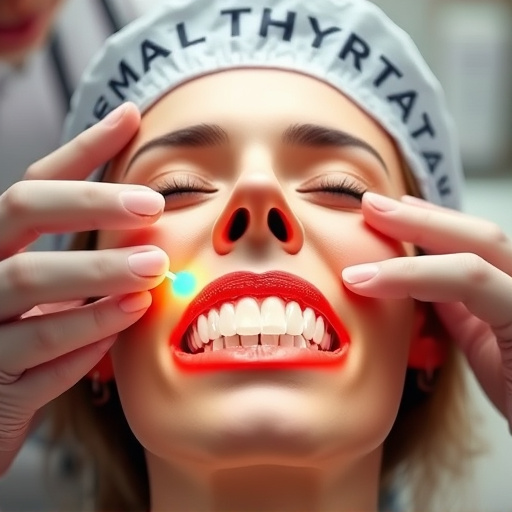
Emergency dental care is a vital service designed to address acute oral health issues that require immediate attention. It’s crucial for several reasons, especially when it comes to managing swelling and bleeding. Many dental emergencies, such as toothaches, abscesses, or jaw injuries, can cause significant discomfort and potential harm if left untreated. Prompt intervention can prevent these conditions from escalating, ensuring patients receive the necessary care to alleviate pain and restore oral health.
Understanding when to seek emergency dental care is essential for maintaining optimal oral hygiene. While general dentistry practices offer preventive measures like regular dental cleanings and teeth cleaning, they may not be equipped to handle severe cases. In such instances, specialized emergency dental services become indispensable, offering quick relief and long-term solutions. Knowing the signs of a dental emergency—like sudden swelling or persistent bleeding—can empower individuals to take swift action, ensuring they receive the appropriate treatment without delay.
Recognizing Signs of Swelling and Bleeding: Early Intervention Strategies
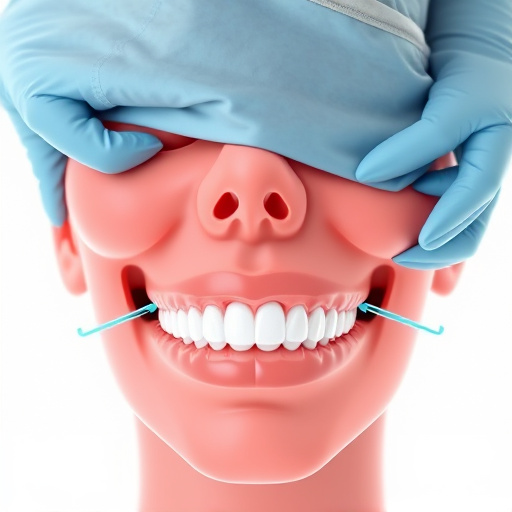
Recognizing signs of swelling and bleeding early is crucial in preventive dental care. Swelling often manifests as a visible bulge or tenderness around teeth and gums, sometimes accompanied by redness. Bleeding can be an indicator of various issues, from gum disease to more serious tooth conditions. Regular check-ups with your general dentistry practitioner are vital for catching these signs before they become severe. Cosmetic fillings and tooth extractions, while addressing different dental needs, both highlight the importance of timely intervention to manage swelling and bleeding effectively.
In between visits, be vigilant about changes in your oral health. Any sudden swelling or persistent bleeding warrants immediate attention. Early intervention strategies include maintaining good oral hygiene, avoiding irritants like spicy foods that can exacerbate inflammation, and using cold compresses for swelling. Prompt action can prevent minor issues from escalating into more complex procedures like tooth extractions and help preserve the aesthetics and functionality of your smile through effective cosmetic fillings.
Effective Treatments for Immediate Relief: A Comprehensive Guide
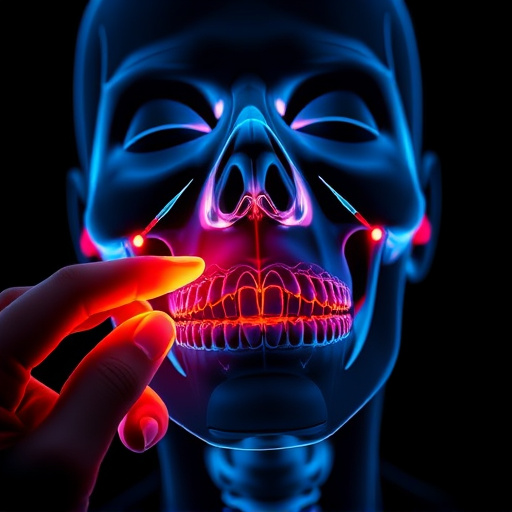
When facing dental emergencies like swelling or bleeding, knowing effective treatments for immediate relief can be life-saving. Preventive dental care plays a crucial role in mitigating such issues, as regular check-ups and dental cleanings form the foundation of maintaining oral health. General dentistry offers a range of solutions, from simple first aid measures to more complex procedures.
For quick relief, over-the-counter pain relievers and cold compresses can reduce swelling and bleeding. In cases of toothaches or abscesses, general dentists may prescribe antibiotics or recommend restorative dentistry treatments like fillings or root canals to address the underlying cause. Regular dental check-ups also facilitate early detection of potential problems, allowing for preventive measures that can avoid more severe complications later.
Emergency dental care plays a pivotal role in managing swelling and bleeding, offering crucial interventions that go beyond routine preventive dental care. By quickly addressing these issues, individuals can alleviate discomfort, prevent further complications, and maintain optimal oral health. Early recognition of swelling and bleeding symptoms, coupled with knowledge of effective treatments, empowers folks to navigate dental emergencies effectively until they can secure professional care.




